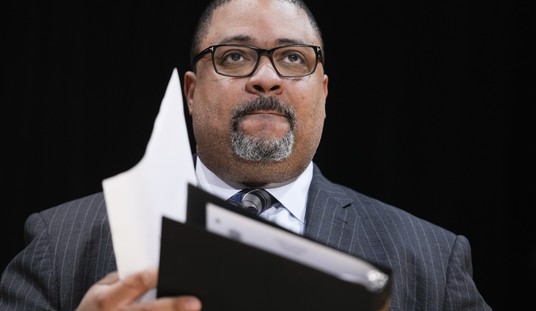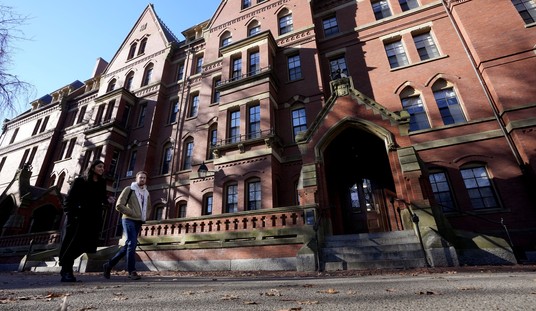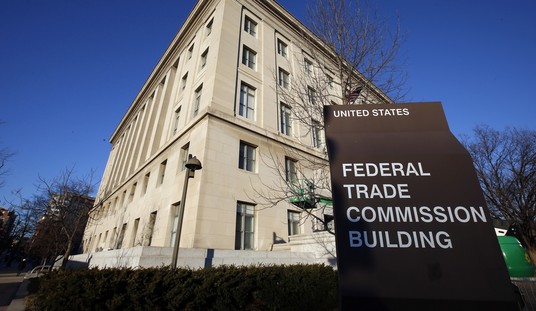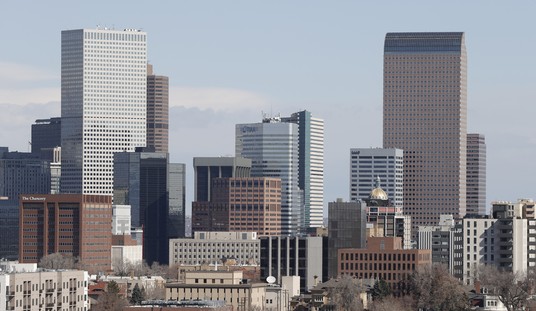
It is hard to imagine a more diverse pair of places that have been overrun by the infestation of public-sector pension problems than Prichard, Alabama and the withering Garden State of New Jersey. One might expect the problems in the Garbage Garden State of New Jersey, which is home to such luminaries as Grover Cleveland, Thomas Edison, Jon Bon Jovi, Bruce Springsteen, and (the fictitious mob boss) Tony Soprano, and where a senator-turned-governor sleeps with a union boss and still nearly wins re-election. However, unlike New Jersey, Prichard, Alabama is hardly an example union bosses run amok—in fact, as a Right-to-Work state, 12 percent of Alabama’s workforce is unionized. Nevertheless, both are the latest examples in a string of bad news stories involving public-sector pensions.
On Thursday, Bloomberg reported that New Jersey’s underfunded pension problem grew by more than $8 billion (or 18%) in the last year, as the state failed to pay its pension obligation.
New Jersey’s pension-funding deficit increased by $8.05 billion, or 18 percent, this year to $53.9 billion as the state failed to make contributions.
The unfunded pension liability was $45.8 billion as of June 2009. New Jersey also faces an unfunded liability of $66.8 billion for providing medical care to retired public employees, the treasury department said in a statement today. [Emphasis added.]
But that’s just the partial picture for New Jersey.
Additionally, the state has a $66.8 billion unfunded promise to future and current employees for lifetime health benefits, the report found.
[snip]
“If all the required contributions to the pension funds had been made over the last decade, New Jersey would still not have enough money to pay all the benefits state and local governments have promised to public employees,” Treasury Spokesman Andy Pratt said in an e-mail.
As New Jersey heads down a likely path of no return, it is worth noting that the town of Prichard, Alabama has already reached that point and has stopped paying its retirees and filed for bankruptcy (twice). While the town’s failure to make payments to its retirees is wreaking havoc on those retirees, as the New York Times notes, how it is handling its issues is also being watched throughout the rest of the nation.
This struggling small city on the outskirts of Mobile was warned for years that if it did nothing, its pension fund would run out of money by 2009. Right on schedule, its fund ran dry.
Then Prichard did something that pension experts say they have never seen before: it stopped sending monthly pension checks to its 150 retired workers, breaking a state law requiring it to pay its promised retirement benefits in full.
[snip]
So the declining, little-known city of Prichard is now attracting the attention of bankruptcy lawyers, labor leaders, municipal credit analysts and local officials from across the country. They want to see if the situation in Prichard, like the continuing bankruptcy of Vallejo, Calif., ultimately creates a legal precedent on whether distressed cities can legally cut or reduce their pensions, and if so, how.
“Prichard is the future,” said Michael Aguirre, the former San Diego city attorney, who has called for San Diego to declare bankruptcy and restructure its own outsize pension obligations. “We’re all on the same conveyor belt. Prichard is just a little further down the road.”
Interestingly, while New Jersey’s pension problems are, in part, due to years of mismanagement and negotiating with public-sector unions, Prichard’s retirees are not unionized. Nevertheless, though not as rich as other public-sector pensions, Prichard’s plan seems flawed and doomed to failure from its outset.
Prichard’s plan enabled employees to retire in their 50s, and the city’s contribution to the pension plan was 10.5% of the employees’ pay (the employees paid 5.5%). In simpler terms, for every $100 that an employee earned, the employee would put $5.50 toward retirement and Pritchard was expected to put $10.50 toward the employee’s retirement—paid for, of course, by tax revenues. Yet, as has happened with cities and states all across the country, Prichard’s tax revenues have fallen victim to people and businesses leaving. As a result, with a poorly designed pension model, it is little wonder that the city has run out of money to pay its retirees.
It is problems like those happening now in Prichard, Alabama and threatening New Jersey and a host of other states and municipalities which should have people across the political spectrum concerned. However, one thing that is not needed is another federal bailout as the New York Times editorial board seems to pushing.
Adding further debt to our nation’s morass by engaging in another (largely) union bailout will be political and economic suicide for any politician that pushes it. However, increasing taxes to cover public-sector debts is also a non-starter—especially in a state like New Jersey which is already overtaxed as it would likely add to more individuals and businesses leaving the state, further exacerbating the problem. Instead, politicians (of both parties) are going to have to be more realistic with the public-sector workers.
Like so many of us in the private sector, public sector employees will have to face a more austere future. That may, by necessity, mean getting less in retirement and/or working longer. However, if they are not willing to face that fact now, the alternative, as those retirees in Prichard, Alabama are experiencing, will be devastating.
_________________
“I bring reason to your ears, and, in language as plain as ABC, hold up truth to your eyes.” Thomas Paine, December 23, 1776















Join the conversation as a VIP Member